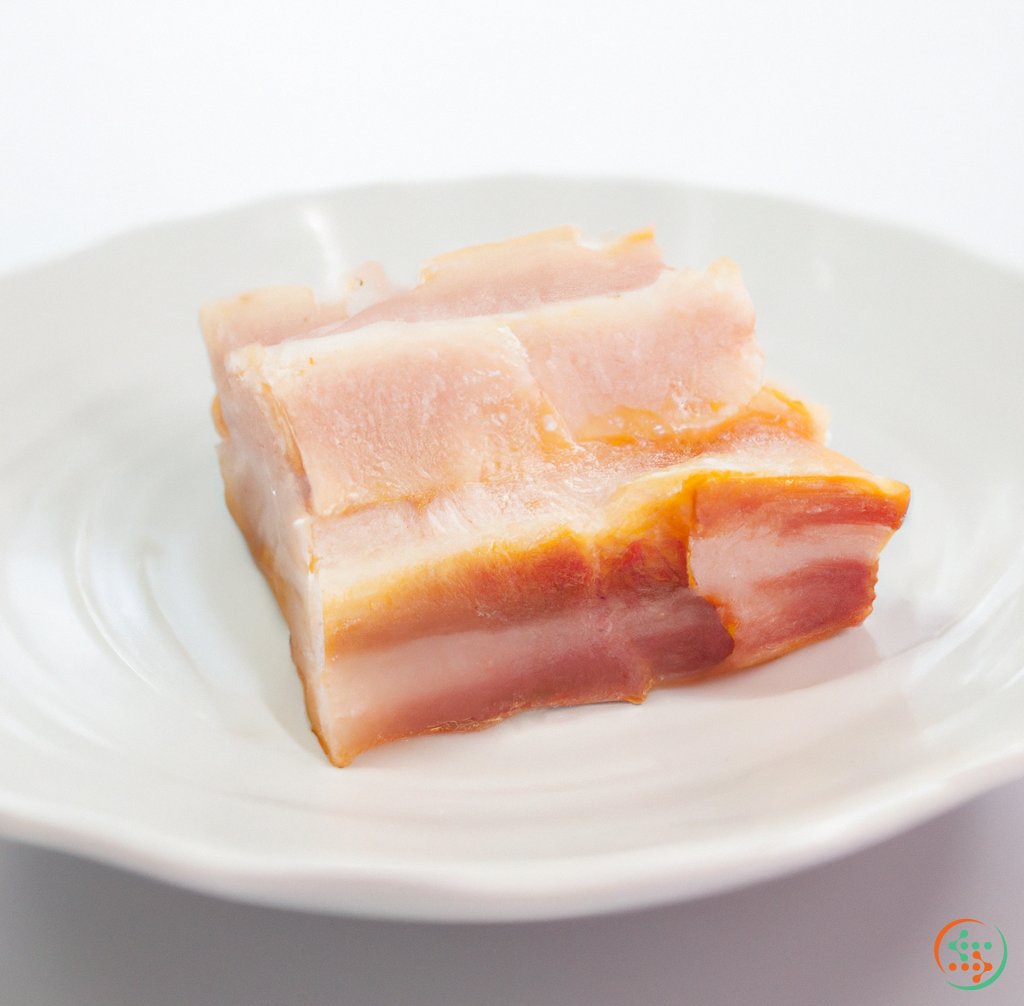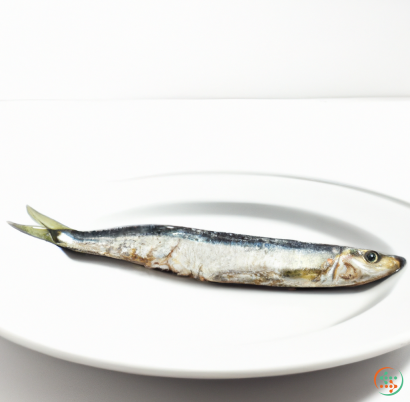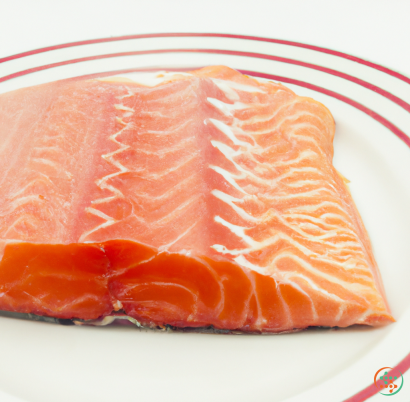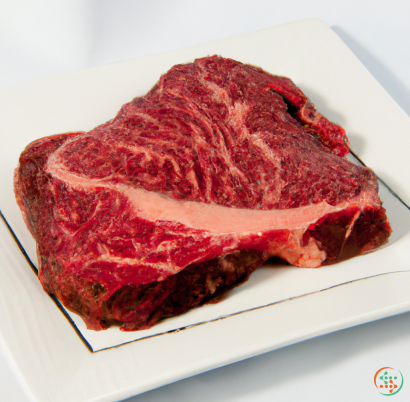Bacon Fat: Complete Vitamin Profile
Bacon Fat: Considered a good source of vitamins?
No, bacon fat is not a good source of vitamins. Bacon fat is primarily composed of saturated fats and cholesterol, which are known to contribute to cardiovascular disease if consumed in excess. Furthermore, the sodium content of bacon fat can also increase blood pressure. While some animal fats do contain trace amounts of fat-soluble vitamins such as A, D, E, and K, the amount found in bacon fat is negligible and would not provide any significant nutritional benefit. Therefore, it is best to avoid consuming bacon fat regularly in order to maintain optimal health.
Bacon Fat ‐ Vitamin Information
Introduction
Bacon fat, otherwise known as lard, is a rendered form of pork fat which has been used since antiquity for culinary and medicinal purposes. The use of bacon in the modern human diet has surged in recent years; it is now an ingredient used extensively worldwide due to its versatility and delicious flavor. In addition to being consumed through food preparations, the fat found in bacon may be utilized medicinally as an oil used topically on the skin or even taken orally by those wishing to reap certain health benefits from it. What are these benefits? And why is bacon fat unique compared to other types of animal fats? In this paper, we will discuss the vitamins found within bacon fat, their uses, and how you might go about incorporating them into your diet.
Types of Vitamins Contained Within Bacon Fat
Most people assume that adding fatty foods like bacon to their diet can only make it worse. However, fatty meats actually contain valuable sources of energy and important micronutrients, including vitamins such as A, E, B3 (niacin), choline, and D.
Vitamin A is one of the most abundant vitamins found in bacon fat. It is essential for healthy eyesight, reproduction, bone growth and development, and also helps protect against infections. Vitamin A has anti-inflammatory properties, making it beneficial to individuals suffering from conditions like arthritis, among others. In order to receive the full benefit of this vitamin, it is recommended to eat at least two servings per week of organ meats like liver, where Vitamin A is especially concentrated.
The second type of vitamin found in bacon fat is Vitamin E. This powerful antioxidant serves many functions in the body including boosting the immune system, promoting fertility, and helping to decrease the risk of blood clotting. Vitamin E also offers moisturizing effects when applied topically to the skin and can assist in treating eczema and psoriasis. Additionally, Vitamin E supports healthy aging by protecting cells from free radical damage. Lastly, Vitamin E can help reduce inflammation associated with conditions like diabetes and rheumatoid arthritis.
Another vitamin often discussed alongside the others is niacin (vitamin B3). Niacin’s main purpose is to catalyze biochemical reactions throughout the body and create energy for the brain, muscles, and heart. Studies have shown that combining bacon with foods rich in thiamine (vitamin B1) and riboflavin (vitamin B2) enhances the absorption of this crucial nutrient. Furthermore, sufficient intake of niacin has been linked to reducing the risks of cancer, cataract formation, and Alzheimer’s disease.
Choline is another important vitamin regularly found in food products made from animal sources, like bacon. Choline is considered to be an essential nutrient, meaning our bodies do not synthesize enough of it naturally to sustain optimal functioning. Thus, it is necessary to obtain adequate amounts externally through animal-based food consumption. Choline aids in membrane structure, nerve signaling, and muscle movement, as well as metabolism regulation. Moreover, studies have revealed protective neurological effects of this substance, indicating that avoiding deficiencies could potentially delay the onset of diseases like Parkinson’s and dementia.
Finally, while perhaps not mentioned lastly, Vitamin D is likely the most renowned amongst all of the vitamins found in bacon fat. Serving as both a hormone and a vitamin, this supplement is produced by the skin after exposure to sunlight and gives off numerous healthful results. Notable examples include countering weakened bones, regulating insulin levels, stimulating cell growth, therefore helping prevent various forms of cancer, guiding proper cardiovascular functionality, and staving off depression. Such harms have caused collective awareness toward high amounts of dietary consumption, something easily accomplished by consuming sizable quantities of bacon.
Health Benefits Of Consuming Bacon Fat Actualized Through Its Vitamin Content
Now that we know what vitamins can be found inside bacon fat, let us take a look at what kind of real-world benefits may come from integrating higher amounts of this good fat into one's diet.
For starters, adding more bacon fat to meals can provide much needed extra energy for daily activities. Since bacon fat contains around 40% saturated fat, it provides an instant boost before the stored carbohydrates are released. This release sustains the excess calories needed to fuel one’s physical activity and makes it possible to perform at optimal performance levels without feeling tired and worn out.
Additionally, because of how easy it is to cook with, bacon fat allows diets consisting of low-carb and low-sugar fares to remain tasty. As previously mentioned, the Vitamin A content enables improved eyesight as well as reproductive health. Niacin assists in combating stroke, coronary heart disease, other cardiovascular problems, and some cancers. Furthermore, choline has long been theorized to aid cognitive development and function thanks to its appeal towards mental acuity. Most remarkably, though, is the ubiquitously lauded influence Vitamin D dishes out. Researchers have observed that populations living regions faraway from the sun still correlate healthier averages in regard to overall life expectancy than those near or completely exposed to the ultra-violet rays. This wonder hormone promotes physical conditioning like collagen production for softer skins and calcium conversions for stronger teeth and bones. Even older age folk appear to draw less symptoms of illnesses related to deteriorating joint cartilages and tensioned muscular aggression.
Conclusion
As you can see, there are several vitamins to be found in bacon fat. All of them each play a vital role in providing either nutritional or medical value to humans who incorporate the food product into their regular diets. From the light lighting provided by Vitamin A, to the lubrication offered by big chunks of Vitamin E, and finally down to the protection sourced from cholesterol components seen in Vitamin D – bacon fat gives us endless possibilities for optimally supporting our own individual bodies. Regardless whether you plan to consume cooked strips of bacon or utilize the fat rubbing method for skincare regimens, rest assured knowing that any decisions you endear are safely grounded in medically reasonable advice.
| Vitamin A | 0.011 mg | |
| Vitamin B2 | 0.02 mg | |
| Vitamin B3 | 0.73 mg | |
| Vitamin B4 | 0.0065 grams | |
| Vitamin B5 | 0.01 mg | |
| Vitamin B6 | 0.01 mg | |
| Vitamin B12 | 0.09 ug |







